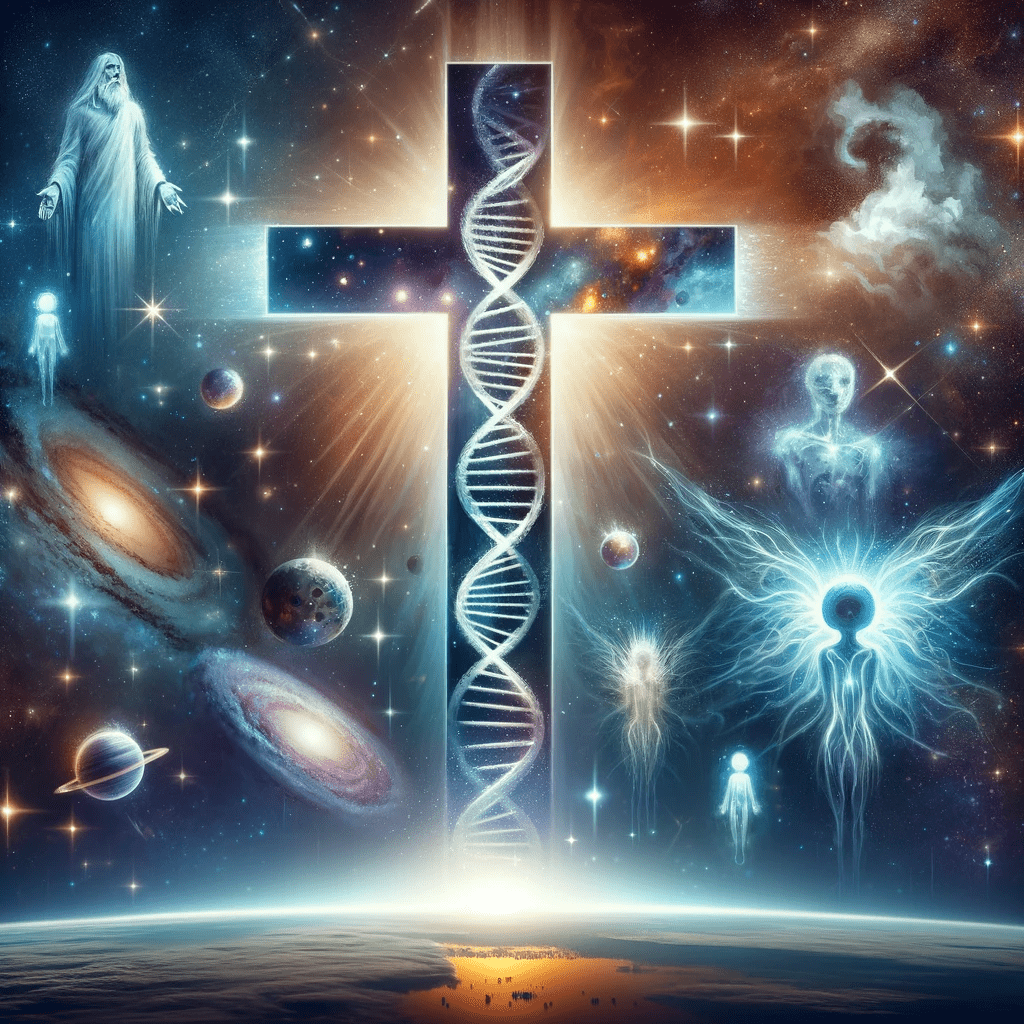Astrobiology and Christian Doctrine

The Rev. Dr. Andrew Davison, a religious scholar, played a significant role in the NASA-funded program at Princeton University’s Center for Theological Inquiry. His involvement was as one of the 24 experts participating in a study exploring how humans might respond to the discovery of non-human intelligent life. This program, partially funded by NASA, aimed to research the intersection of religion and the potential existence of alien life.
Dr. Davison’s work in this program focused on examining the existential questions from a theological perspective, particularly how astrobiology and Christianity interconnect. He, along with other participants, considered how followers of major religions might react to the discovery of aliens. The study suggested that adherents of religious traditions might be more prepared for the idea of extraterrestrial life and that those without religious affiliations could be inclined to seek religious insights in such an event.
His findings and experiences during this program were documented in his book, “Astrobiology and Christian Doctrine,” which touches on the themes and insights derived from his time in the program.
In the interview conducted by Anthony Baker with Dr. Andrew Davison, dated July 17, 2023, Davison, the Starbridge Professor in Theology and Natural Sciences at the University of Cambridge, discussed his work and perspectives on the intersection of theology and science. A significant part of the conversation revolved around Davison’s involvement in astrobiology and Christian doctrine, highlighting his recent book on the subject. The interview explored Davison’s journey from a background in natural sciences to his current theological studies.
Davison expressed his views on how the discovery of extraterrestrial life would impact theological understandings, particularly in the areas of creation, sin, salvation, and eschatology. He emphasized the lack of “red flags” but noted the provocative nature of such discoveries on Christian theology, especially concerning Christology. Additionally, Davison shared insights into his other theological interests, including the interconnectedness of Christian doctrines and the relevance of theology in everyday life and other academic fields. The interview also touched upon the importance of scriptural reflections in the faith journey of believers and the integration of faith with other aspects of life. Davison’s approach highlights the dynamic and evolving nature of theological understanding in the context of new scientific discoveries and societal changes.
Davison, who transitioned from a career in chemistry and biochemistry to a theological vocation, brings a nuanced perspective to the dialogue between science and faith. His work in astrobiology and Christian doctrine, as showcased in his recent book, looks into the potential theological implications of discovering extraterrestrial life.
He suggests that while there may not be immediate doctrinal conflicts, these findings could provoke deeper theological contemplations, particularly in Christology. This exploration is part of a broader inquiry into how scientific advancements can enrich and challenge established religious understandings.
Davison’s conversation with Baker underscores the significance of scripture in guiding believers’ faith journeys. He discusses how scriptural reflections form the bedrock of piety for many and how believers actively engage with Biblical narratives, drawing personal and communal meanings from them. This interaction with scripture is not just about seeking answers but also about nurturing a thoughtful and joyful exploration of faith.
In the interview, Dr. Andrew Davison described his relationship with NASA as indirect but significant for his work. The funding from NASA was channeled through the Center for Theological Inquiry at Princeton University, where Davison was a Distinguished Visiting Fellow. This arrangement provided him with the opportunity to look deeply into astrobiology and its theological implications. Davison appreciated the collaboration, noting it facilitated access to scientific expertise and resources, enriching his research and allowing him to explore theological questions from new perspectives.
In the interview, Dr. Andrew Davison discussed the historical engagement of Christian theologians with the concept of non-human intelligence. He noted that this topic has been a subject of contemplation and writing among theologians since the 15th century. Davison emphasized that contrary to the common perception that theology has been resistant to such ideas, there has been a continuous and thoughtful engagement with the possibility of extraterrestrial life within theological discourse for centuries. This historical perspective challenges the notion that theology is only recently grappling with the implications of potential discoveries in astrobiology.
Dr. Andrew Davison highlighted that in the event of discovering non-human intelligence, a large number of people would likely turn to their religious traditions for guidance and understanding. He suggested that for many, religious beliefs and perspectives would play a crucial role in interpreting and making sense of such a profound discovery and its implications for humanity’s understanding of the universe and our place in it. Davison’s comments reflect the deep interconnection between faith and responses to significant, potentially world-altering events.
Dr. Andrew Davison spoke about the concept of multiplicity in the context of theology and the discovery of extraterrestrial life. He discussed the idea that the universe, characterized by its vastness and diversity, reflects the plenitude and splendor of God. From this perspective, the existence of multiple forms of life throughout the universe would be consistent with and even expected within Christian theology. This view sees the diversity and multiplicity in creation as a manifestation of God’s abundant creativity and generosity. Davison’s comments suggest a theological openness to the existence of life beyond Earth, viewing it as a natural extension of the richness and complexity of God’s creation.
Davison’s insights in this interview shed light on the evolving landscape of theology in the context of contemporary scientific developments. His unique background and approach to integrating science and theology offer a fresh perspective on how religious beliefs and practices can adapt and thrive in an increasingly complex world.


